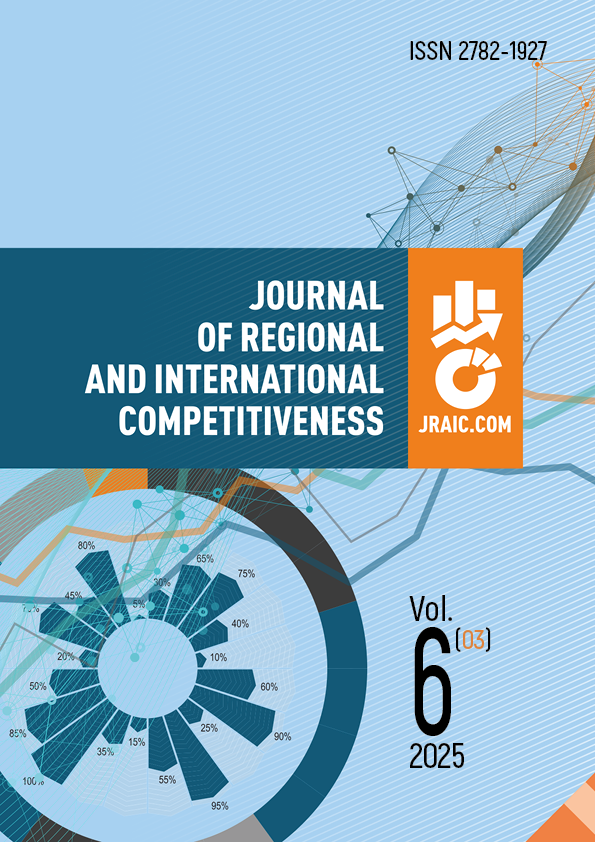Financial University under the Government of the Russian Federation
Moscow, Russian Federation
Moscow, Moscow, Russian Federation
Moscow, Moscow, Russian Federation
This article examines the role of startup ecosystems in shaping the innovative competitiveness of a national economy, using Sweden and Estonia as case studies. The analysis focuses on the key elements of successful ecosystems, including the institutional environment, access to finance, human capital development, and the level of digitalization. Particular attention is paid to a comparative analysis of two distinct models: the Swedish model, characterized by a complex, multi-layered architecture integrating the state, universities, and large corporations, and the Estonian model, which is oriented towards the digitalization of administrative infrastructure and the creation of an open global ecosystem. The positive effects of developing startup ecosystems are considered, such as inbound investment flows, an increase in the number of high-tech companies, and improved national standings in global competitiveness rankings. The relevance of the topic is driven by the growing importance of innovation as a key factor for economic growth and resilience in the context of global competition. The aim of this research is to identify the relationship between the development of startup ecosystems and the level of national competitiveness, as well as to determine key trends, barriers, and prospects for countries with emerging innovation ecosystems. The research logic is as follows: first, the conceptual framework and theoretical foundations of innovative competitiveness and startup ecosystems are outlined; subsequently, a detailed comparative analysis of the Swedish and Estonian models is conducted, employing statistical data and correlation analysis to identify key success factors. The study is based on comparative, statistical, and analytical methods, as well as on the analysis of contemporary scientific publications and reports from international organizations. Based on the analysis, it is concluded that the competitiveness of a national innovation economy is determined by the efficacy of administrative institutions and the degree of digitalization. The findings of this research can be utilized for developing small and medium-sized enterprise (SME) growth strategies in other countries.
startup ecosystem; national competitiveness; innovative competitiveness; national innovation system; comparative analysis
1. AlQershi, N. (2024). Strategic thinking, strategic planning, strategic innovation and the performance of SMEs: The mediating role of human capital. Management Science and Education Innovations, 1(19).
2. Bala Subrahmanya, M. H., & Arun Kumar, G. (2024). Promoting Entrepreneurial Universities in India: A Case Study of IIT Madras. Journal of technology management & innovation, 19(4), 113-126. DOI: https://doi.org/10.4067/S0718-27242024000400113
3. Bereczki, I. (2019). An open innovation ecosystem from a startup’s perspective. International Journal of Innovation Management, 23(8), 1940001. https://doi.org/10.1142/S1363919619400012
4. Genome, S. (2021). The Global Start-up Ecosystem Report 2022. Startup Genome: San Francisco, CA, USA.
5. Gobble, J. D. (2022). Developing Professional Behaviors During Residency: The Shared Experiences of Resident in Counseling Supervisors.
6. Gonzaga, B. S., Figueiredo, P. S., Souza, E. L. R. C., & Passos, F. U. (2020). Organizational learning capacity of startups in Northeast Brazil. Revista de Gestao, 27(3), 301–316. https://doi.org/10.1108/REGE-11-2019-0116
7. Grosu, F. (2022). A Comparative Analysis of the Fintech Ecosystems in Romania and Estonia. Revista de Management Comparat Internațional, 23(5), 646-655.
8. Hajighasemi, A., Oghazi, P., Aliyari, S., & Pashkevich, N. (2022). The impact of welfare state systems on innovation performance and competitiveness: European country clusters. Journal of Innovation & Knowledge, 7(4), 100236. DOI: https://doi.org/10.1016/j.jik.2022.100236
9. Jurgelevičius, A.; Kučaidze, N. (2020). The Development of Innovative Startups and Tech Based Companies in European Countries. Economics Ecology Socium. 4, 1-7. DOI: https://doi.org/10.31520/2616-7107/2020.4.4-1; EDN: https://elibrary.ru/SWVECS
10. Laidroo, L., Tapver, T., & Kukk, M. L. Fintech Report Estonia 2023.
11. Moore, J. F., Rong, K., & Zhang, R. (2022). The human ecosystem. Journal of Digital Economy, 1(1), 53–72 DOI: https://doi.org/10.1016/j.jdec.2022.08.002
12. Nambisan, S., Patzelt, H., Autio, E., Coviello, N., & Thomas, L. D. (2024). Organizational scaling, scalability, and scale-up: Definitional harmonization and a research agenda.
13. Pisoni, A., & Onetti, A. (2018). When startups exit: Comparing strategies in Europe and the USA. Journal of Business Strategy, 39(3), 26–33. https://doi.org/10.1108/JBS-02-2017-0022
14. Rastvortseva S., Tikhonova A. (2024). Competitiveness of companies in the design, engineering and construction of nuclear power plants. Journal of Regional and International Competitiveness. 5 (1). 70-81. https://doi.org/10.52957/2782-1927-2024-5-1-70-81 EDN: https://elibrary.ru/LOOVAE
15. Rastvortseva, S., & Amanalieva, A. (2021). The concept of technological proximity in the development of European Union national innovative systems. Bulletin of Geography. Socio-Economic Series, 51(51), 35–45. https://doi.org/10.2478/bog-2021-0003
16. Sancho-Zamora, R., Hernández-Perlines, F., Peña-García, I., & Gutiérrez-Broncano, S. (2022). The impact of absorptive capacity on innovation: The mediating role of organizational learning. International journal of environmental research and public health, 19(2), 842. DOI: https://doi.org/10.3390/ijerph19020842
17. Shkiotov S., Markin M., Rodina G. et al. (2025). Spillover Effects of Financial Development and Globalisation on Environmental Quality in EAEU Countries. Sustainability. 17(4). 1496. https://doi.org/10.3390/su17041496 EDN: https://elibrary.ru/YCRBUX
18. Shkiotov, S. V. (2023). Impact Assessment of the mutual trade depth on the economic growth rates of the EAEU states. Journal of Regional and International Competitiveness, 4(2). 11-18. EDN: https://elibrary.ru/HKOKNY
19. Skawińska, E., & Zalewski, R. I. (2020). Success Factors of Startups in the EU—A Comparative Study. Sustainability, 12(19), 8200. https://doi.org/10.3390/su12198200
20. Wurth, B., Stam, E., & Spigel, B. (2023). Entrepreneurial ecosystem mechanisms. Foundations and Trends® in Entrepreneurship, 19(3), 224-339. DOI: https://doi.org/10.1561/0300000089
21. Ziakis, C., Vlachopoulou, M., & Petridis, K. (2022). Start-up ecosystem (StUpEco): A conceptual framework and empirical research. Journal of Open Innovation: Technology, Market, and Complexity, 8(1), 35. DOI: https://doi.org/10.3390/joitmc8010035




















